‘The worst part was seeing him falling apart as the years passed,’ says Julian. ‘He was in pain near the end. It was horrible for us, as a family, to witness his decline.’
Max and Julian enjoyed an early childhood like any two brothers. Just two years apart, they did everything together – ice-hockey, family holidays, occasional ‘sword’ fights.
For their parents, Ruediger and Anke, life was full. They were busy watching their sons develop and grow up together; busy juggling home life and work; busy making plans for the future. Along the way, the kids picked up their share of coughs, colds and childhood illnesses. The parents worried, the boys bounced back, everyone moved on.
When Max was six months old, he caught measles – he was too young to have the vaccine which is he caught measles around a child’s first birthday. His father recalls how Max endured a high fever for several days and the virus affected his lungs, making it hard to breath. But after a few weeks, it appeared that baby Max had made a full recovery.
***
Fast-forward nine years. Max began having problems with balance, his school performance dipped, and he suffered repeated seizures. ‘We thought it might be epilepsy,’ recalls Julian, who was 12 at the time. ‘Other kids would make fun of him because he had to wear a helmet to protect him from falls….One time at hockey training I deliberately tackled a teammate because he was saying dumb things to Max and laughing at him.’
The boys had always enjoyed visiting the local swimming pool, but this too was becoming a challenge – physically and socially. ‘He was so sick of people laughing and asking him why he wasn’t in school some of the time. Soon, he was unable to go to school at all.’
Max fell into a coma at the age of 10.
***
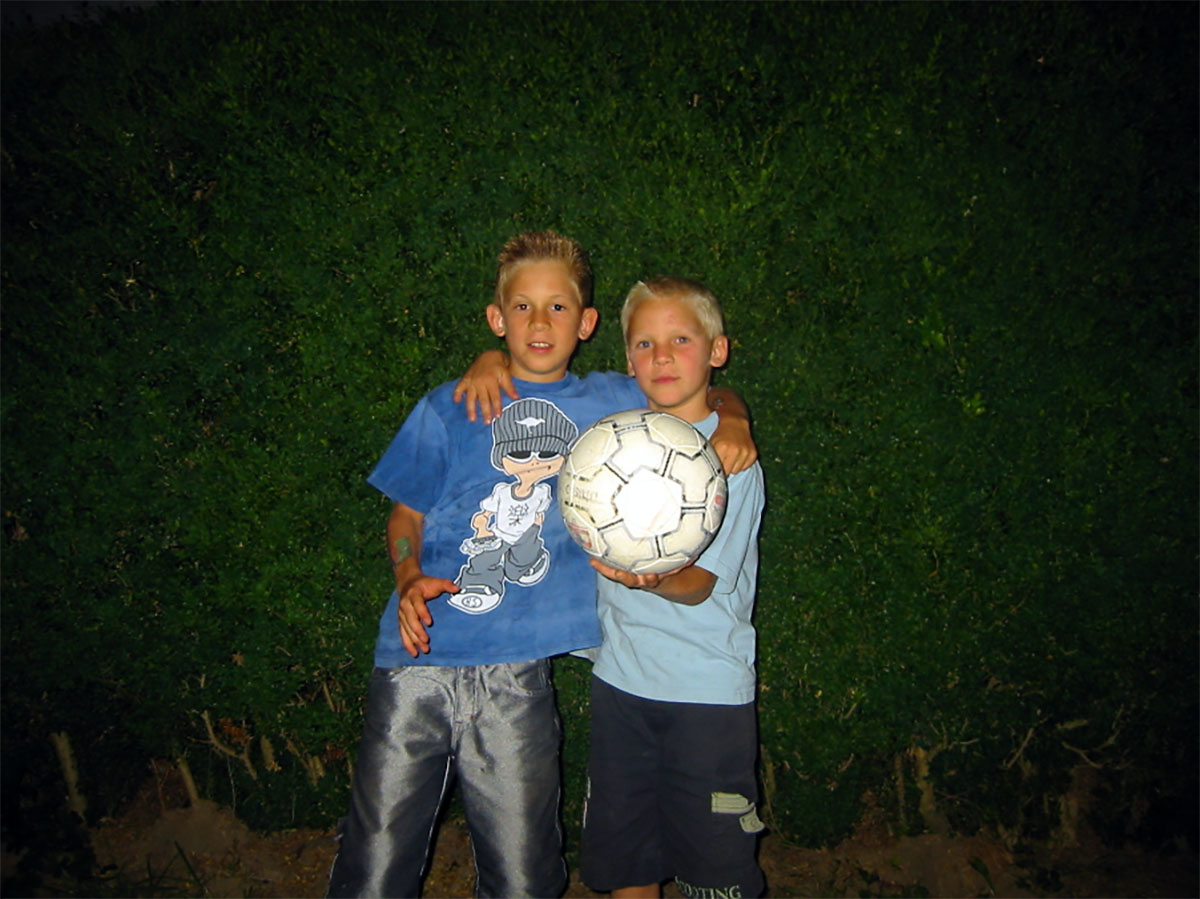
‘I’ll never forget my parents coming back from the doctor. They had been told that Max had SSPE and had two or three weeks to live. It was devastating.’
Subacute sclerosing panencephalitis (SSPE) is a rare complication of measles that occurs 7-10 years after infection with the measles virus. There is no treatment and it is always fatal.
The family prepared to lose their youngest member that month. In the end, it was 9 years before Max succumbed to his illness. Those years transformed their lives completely: the family, supported by nurses and palliative care specialists, cared for Max in their home until his final weeks. Max died in February 2014.
***
‘When I moved to Berlin in 2012 to study it was the first time in my life that I hadn’t seen him every day. Then I got a call from my Dad – it was February 2014 – to say I should come home. It was close to the end.’
Julian describes this as another low point in the long and difficult illness. ‘The most shocking moment for me was definitely when I saw Max in the hospice for the first time in a few months. His condition had deteriorated, and he was obviously close to death. I knew I was going to lose my brother.’
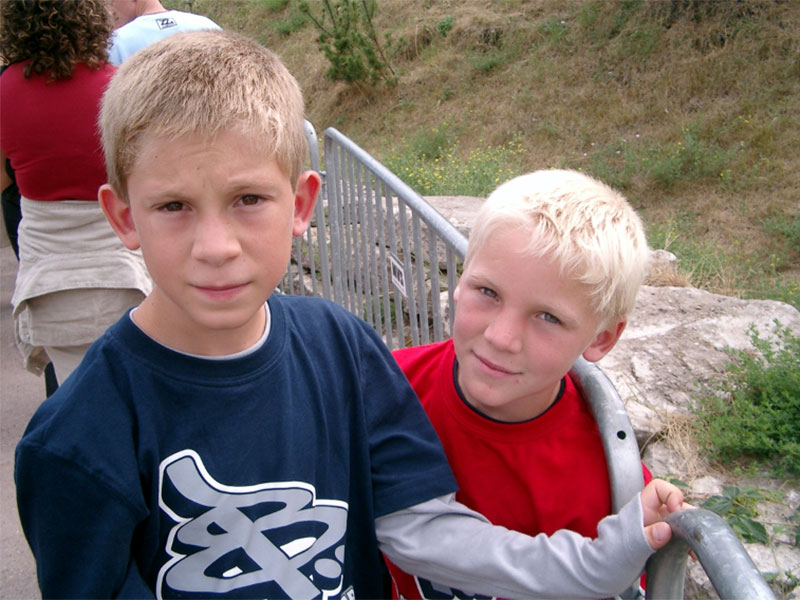
‘The funeral was really tough. Everybody was crying,’ recalls Julian. ‘But it also felt like a relief – for the family and especially for Max. In the end, he was really suffering. We had watched him fall apart.’
Years spent in bed had left Max in pain. Near the end, his left leg detached from his hips. ‘That made it impossible for us to take care of him because he would cry if we touched him. Those were probably the worst months for me. He had previously seemed content in his world but, from that day on, I just wished he didn’t have to endure it for too long.’
‘Sometimes I even wished he could finally rest in peace. I remember asking myself whether it was morally right to wish your brother could die.’
Julian felt like he had lost his brother years before the funeral. His own teenage years had been dramatically changed by Max’s illness.
***
For years before he left home, Julian had grown accustomed to living with a sibling who had a terminal illness. His parents had tried hard to ensure Julian lived a normal life and had a strong network of friends.
‘I sometimes felt a kind of guilt because I thought I should try to incorporate him more into what I was doing because other siblings were always doing things together,’ Julian says. ‘I sometimes slept in his bed just to give him the feeling that I am there.
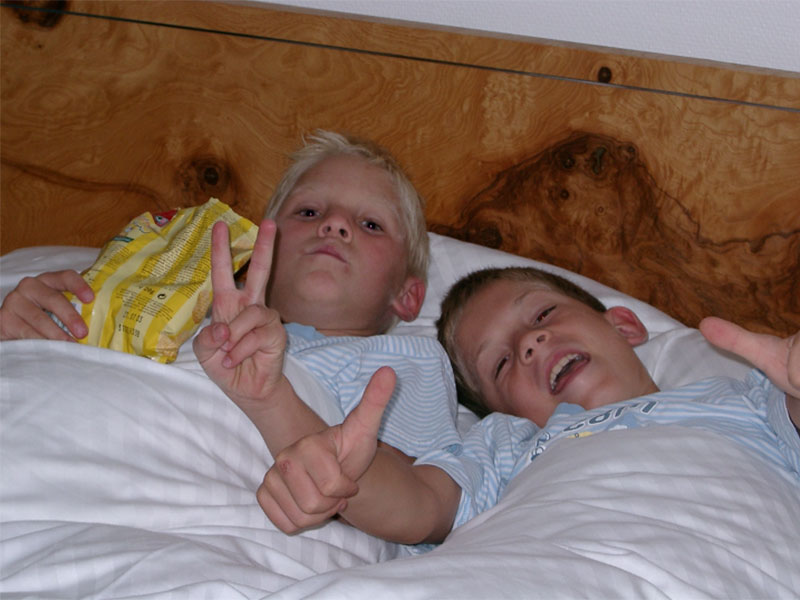
In the period after Max’s diagnosis, Julian worried about his brother’s seizures – offering protection and comfort where he could. ‘Max would be in the middle of talking or playing and he would suddenly stop and have a seizure. I immediately had to put my arms around him so that when it’s over he feels comfortable and safe. It seemed to make the seizures shorter,’ Julian says.
‘I remember one time when he came out of a seizure, he held me very tightly and softly. He was clearly out of breath and I’ll never forget him saying – ‘I hate it, I just hate it’ – the disease was making him miserable.’
When Max could no longer walk, Julian would bring him for strolls in his wheelchair. The boys still had a connection: ‘When he was still able to show emotions, I would make funny noises to make him laugh. All of that became impossible when he needed intensive care.’
‘My parents tried hard to keep things as normal as possible for me. But, naturally, our family life was totally changed. There were nurses at our house all the time so the focus of everything shifted. I cannot imagine how life would have been if Max had never gotten sick.’
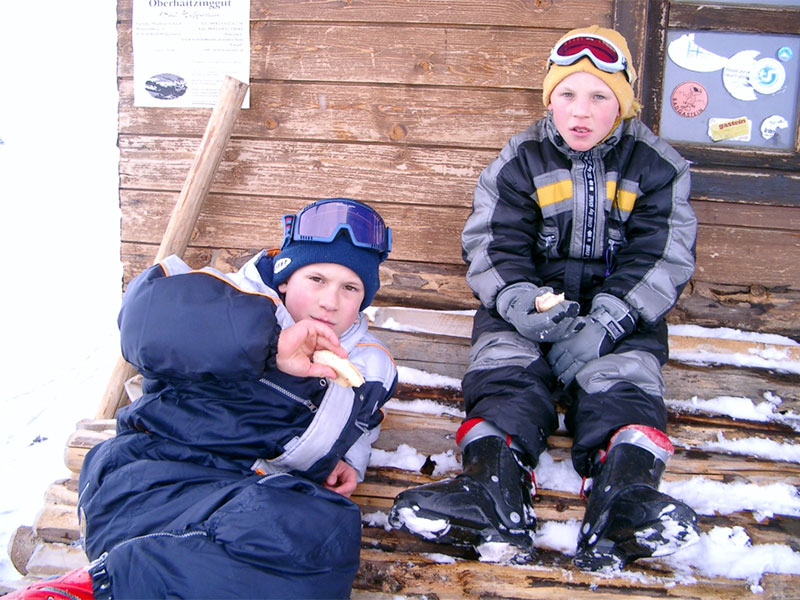
***
Today, Julian is a filmmaker. Tasked with creating a short piece as part of his final thesis, he decided to tackle the story of his family’s painful experience with SSPE. At the very least, it would result in a video that might encourage people to vaccinate their children. It might even help to process some of the difficult times Julian and his parents had endured.
‘I wanted to focus on this for my thesis and to get the message out,’ Julian told Vaccines Today. ‘But I underestimated the emotional effort the project would demand.’
The film puts Anke – Julian and Max’s mother – in the spotlight. Using the family archive of photos and home videos, it depicts an idyllic childhood and a mother’s hopes for her children as they grow.
Then, just as the family experienced in real time, everything changes. It feels like time stops as the soundtrack shifts and the colour drains from screen. Max’s image fades from a family photo, reflecting his slow disappearance from their lives.
It’s Julian’s contribution to the family’s effort to do something positive with a nightmare that dominated their days for almost a decade – and that follows them still. It can be hard not to think how different their story could have been.
‘I still remember that Max always wanted to become a vet,’ says Julian. ‘I always wonder what life would be like today, how our relationship would be if he were still around. Whenever I think too much about this, I get very sad. When I see other siblings doing things together, I wonder what Max and I would be doing right now, both young adults – what it would be like if he stepped through the door at this moment.’
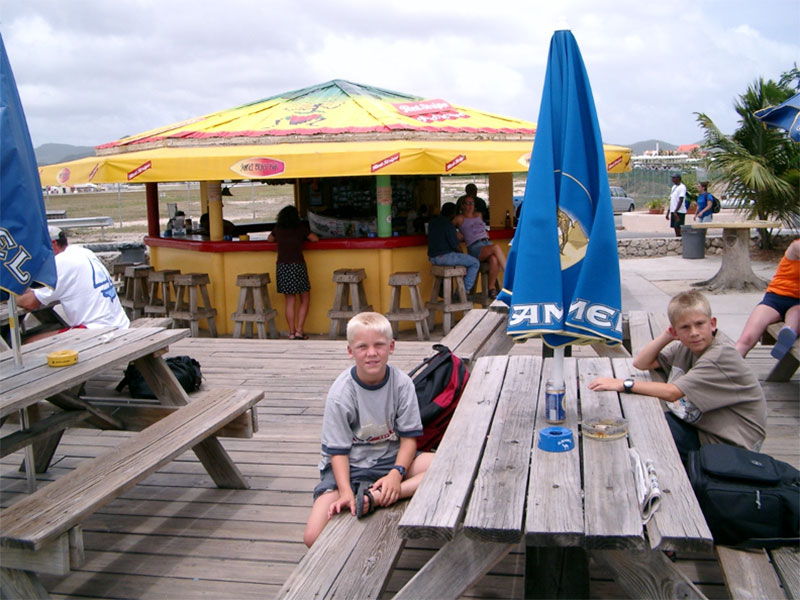
***
After Max died, Ruediger and Anke threw themselves into campaigning work. They attended events, worked with health authorities and shared their experience in the hope of raising awareness and encouraging people to vaccinate.
It took a lot of energy and opened old wounds every time the story was retold. After a few years, they took a step back. Now, with Julian’s new film going online, Ruediger sees a new angle on the family story. ‘We told our story many times. But the focus is always on the parents. It’s understandable, but nobody ever thinks about the siblings.’
The film, available in German and English, is a window on the anguish and misery that measles can bring on a family. Julian hopes it might change how the public sees the disease. ‘People think measles is just a simple childhood illness. Maybe this story will change that. Maybe it will even change the mind of some people who are sceptical about the need for vaccination.’
Max and Julian’s father, Ruediger, wrote this article about their experience. It remains the most viewed article on Vaccines Today since the website was launched in 2011 .
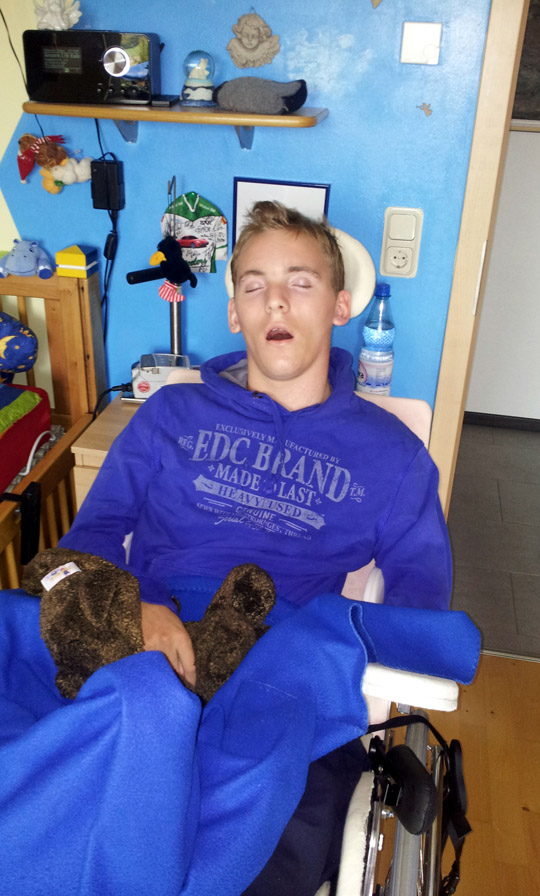





Ruth Vale
July 9th, 2020
There were no vaccines against mumps when we were growing up. As a young lad of about 10, my eldest brother caught the disease from me. He was so ill that he was in intensive care for almost a month and developed encephalitis. He did recover but we’ll never know whether the mental illness he developed as a young adult was attributable to that time. All of these childhood illnesses can be dangerous and can cause long lasting symptoms, sometimes killing. Please vaccinate your children.
Gary Finnegan
July 9th, 2020
Thanks for sharing your story Ruth. Sorry to hear of your brother’s very unpleasant experience.
Gemma
July 10th, 2020
My son caught measles before he could be vaccinated he was diagnosed with SSPE March 2019 and he passed away from it April 30th 2019 aged 6 years, 9 months and 3 days.
I’m trying to raise awareness and have done an interview here in the UK with the BBC and in the Sun newspaper.
Gill
July 25th, 2020
I’m so sorry, Gemma – what a devastating loss. 😟 I hope that your awareness-raising helps.
Gemma
July 10th, 2020
My son caught measles before he could be vaccinated against it.
Last January (2019) he became clumsy, and was diagnosed with SSPE 19th March 2019 he fell into a coma 24th March 2019 and he passed away 30th April 2019.
I have tried to raise awareness here in the UK.
Gary Finnegan
July 21st, 2020
Dear Gemma,
Thanks for sharing your story. I read about it on Twitter. Do you have any links to UK media articles on the topic?
Take care,
Gary
Ayeza
July 20th, 2020
My 17 year old brother was diagnosed with sspe in November 2019 even though he was vaccinated and had no prior history of measles. He died on 29 February 2020. The pain and suffering he endured for the last months will haunt me for life .. All I can say is that sspe patient are warriors and fighters .. I am a proud sister of an sspe warrior.
Ayeza
July 20th, 2020
My 17 year old brother was diagnosed with sspe even though he was vaccinated and had no prior history of measles.. his sufferings will haunt me forever .. he passed away 3 months after his diagnosis on 29 February 2020 . All I can say is that sspe patients are fighters and warriors ..and I am the proud sister of an sspe magical boy that I will love forever 💞
Gary Finnegan
July 21st, 2020
Dear Ayeza, thanks for sharing your story. Our condolences on your loss.
Bikash Ranjan Prusty
August 26th, 2021
It’s a same story here as well. Wish everyone take vaccines on time